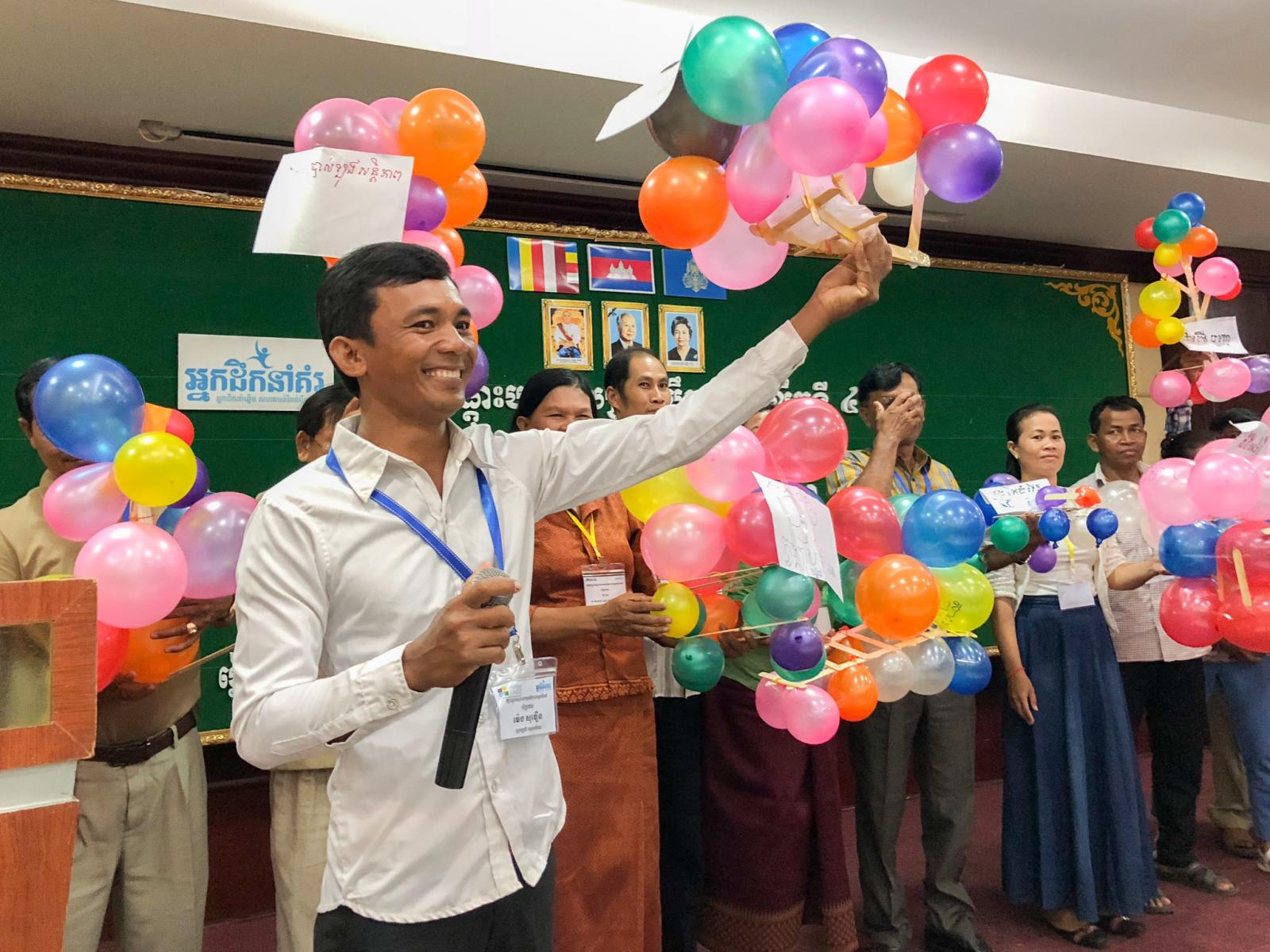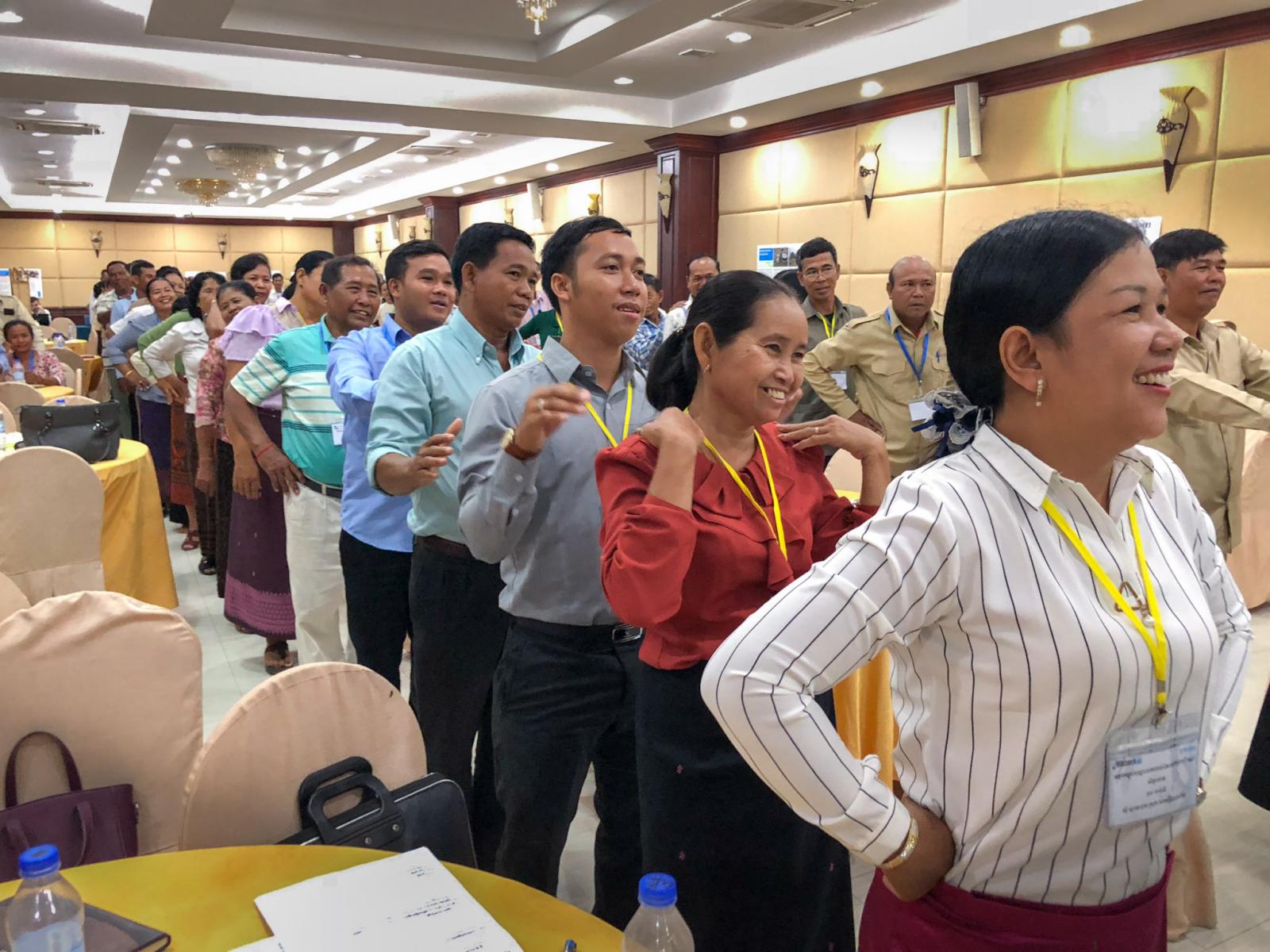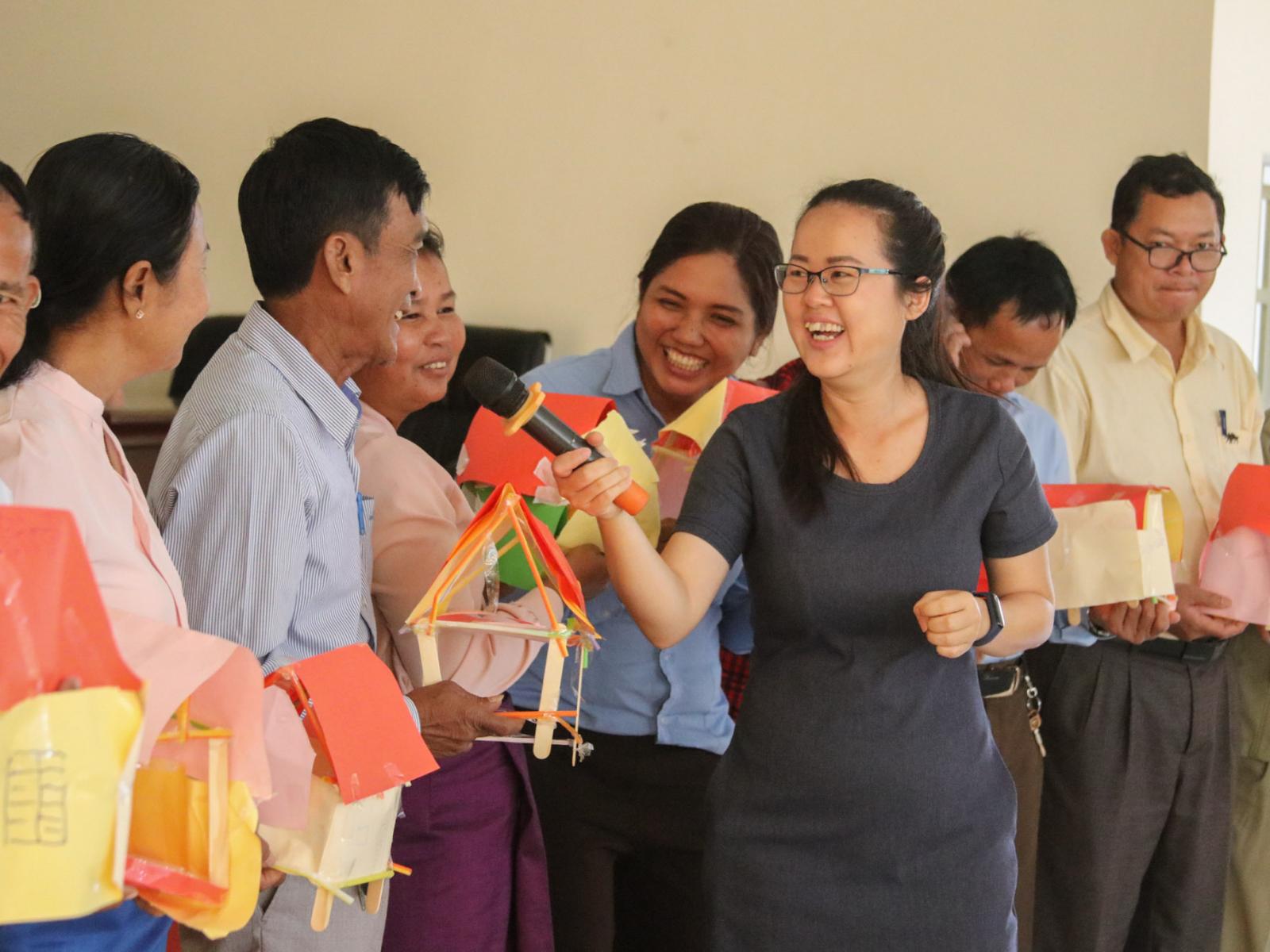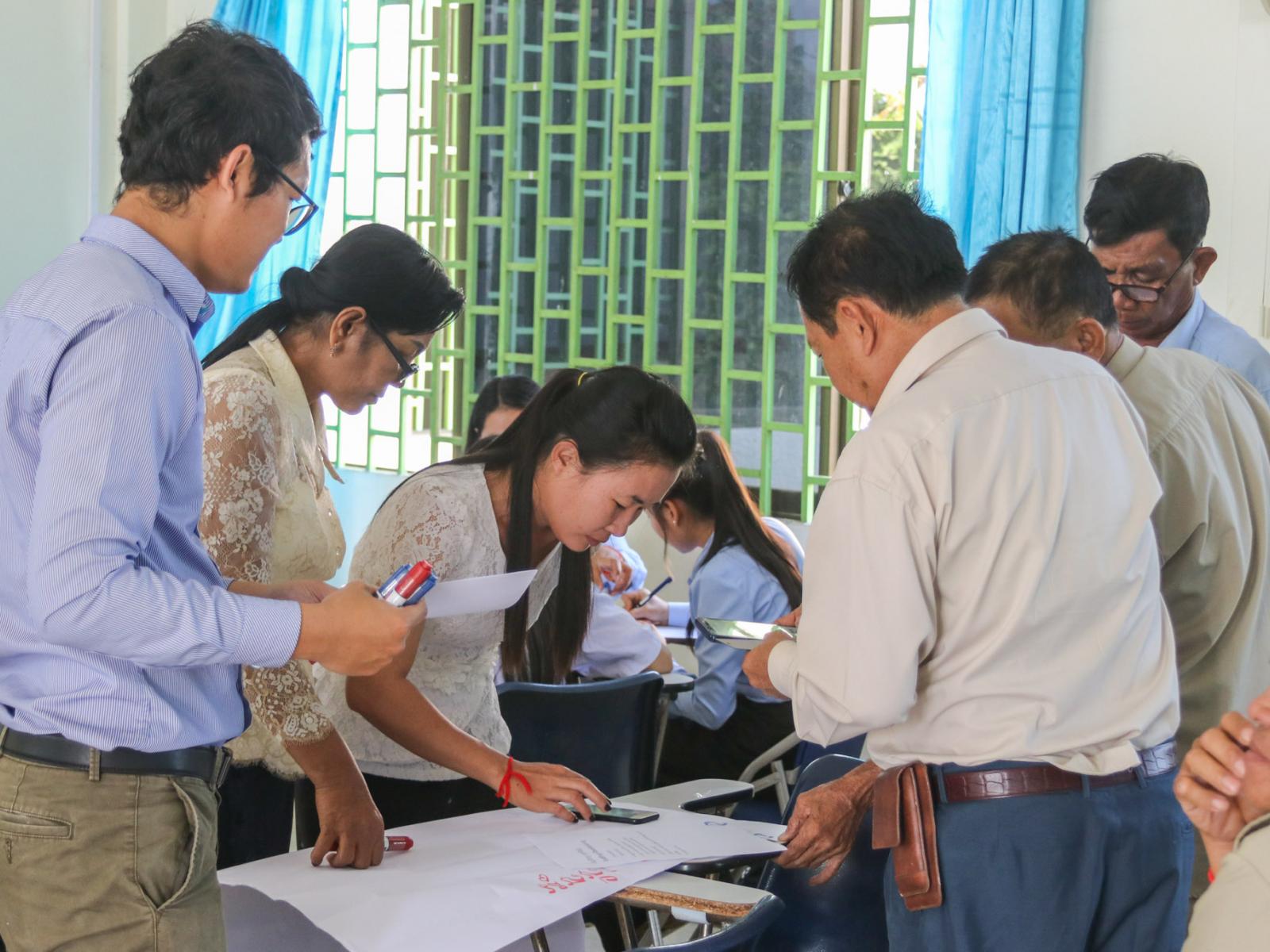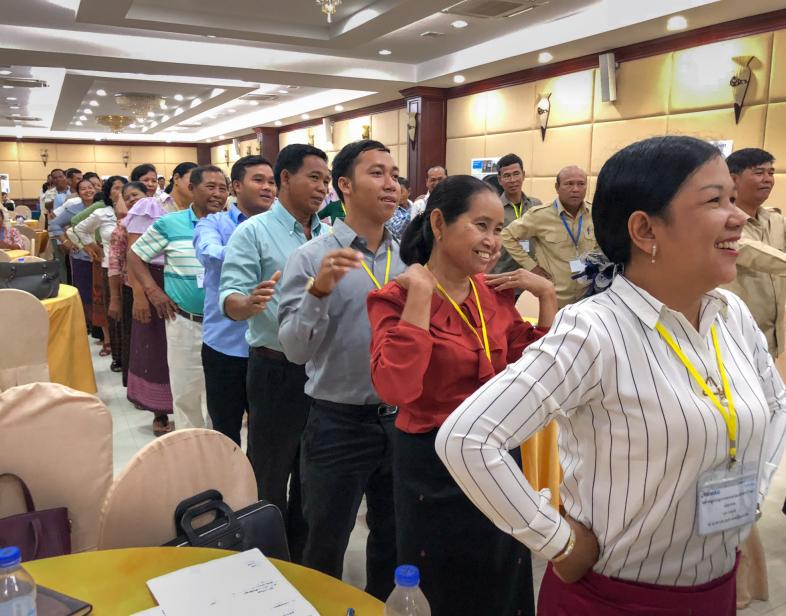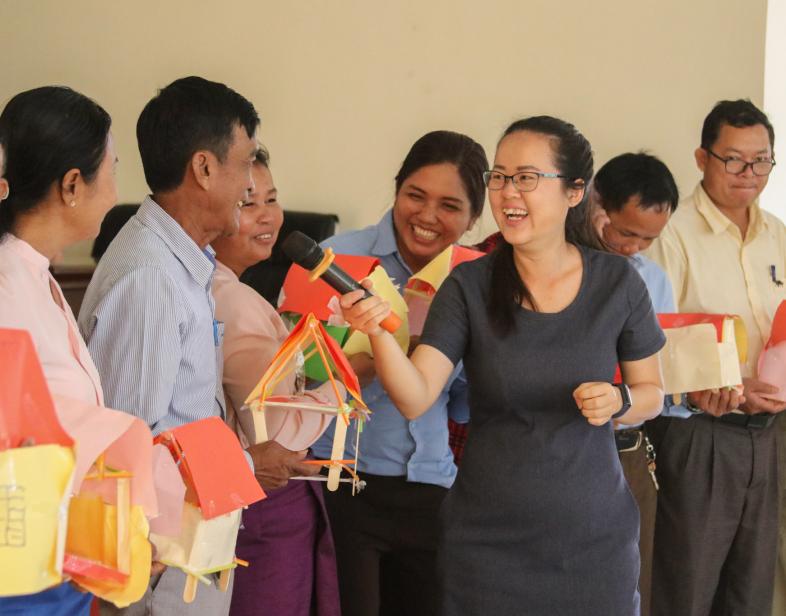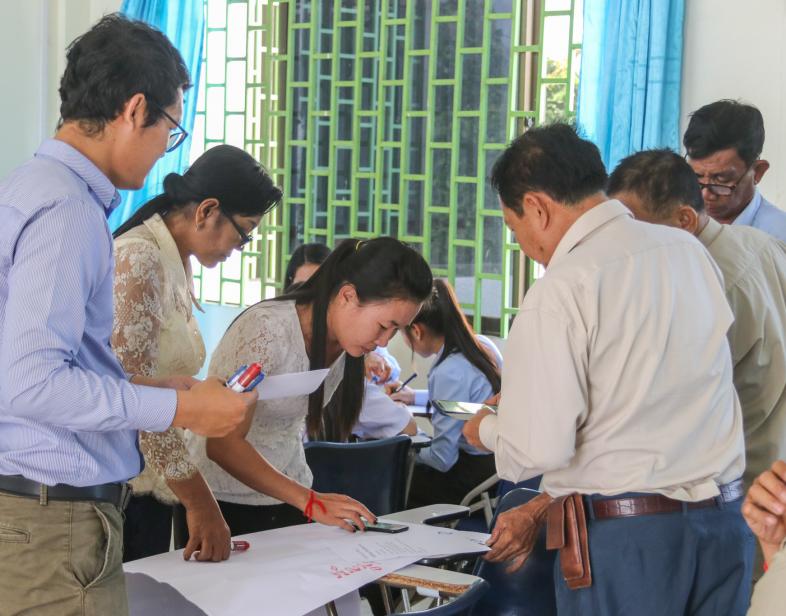An Overview Of Our Solution
The Civic Champions program was inspired by WaterSHED’s experience working at scale to build a rural sanitation market. Even in communities with similar socio-economic conditions, toilet sales and uptake greatly varied. The difference was a locally elected government official who displayed resilient and responsive leadership behaviors. What if these behaviors could be fostered to accelerate sanitation coverage?
The 2015 Civic Champions pilot resulted in an extraordinary 400% increase in toilet sales. Since then, it has been scaled up through several design iterations in close partnership with the government. In 2020-2021, WaterSHED is handing over the program to the government for nationwide scale and application of the leadership development methodology to other sectors.
- Population Impacted: 7,000,000
- Continent: Asia
First name
Last name
Organization type
Context Analysis
In 2010, against a backdrop of steady economic growth and relative political stability, WaterSHED saw an opportunity in rural Cambodia for a local private market for water, sanitation, and hygiene. Convening an array of stakeholders, WaterSHED sought to build the foundations of a market – to help local businesses add modern WASH products and to introduce compelling marketing tools.
By 2017, access to improved sanitation in rural areas had climbed to 71% – up from 25% when WaterSHED started. Today, rural Cambodians with rising levels of prosperity are asserting choice and driving the direction of the WASH market.
WaterSHED’s intensive leadership program for local government, Civic Champions, is key to the program’s success. Assessment of the pilot’s impact revealed an approximate 400% increase in latrine sales compared to the average latrine sales in the same period across WaterSHED’s targeted 8 provinces. The following scale-up (8 provinces) achieved comparable results.
Describe the technical solution you wanted the target audience to adopt
In terms of the toilet solution we aim for rural Cambodian consumers to adopt, in consortium with the Cambodian Ministry of Rural Development (MRD) and sanitation development NGOs, WaterSHED led the design and standardization of a pour-flush offset pit latrine. The concrete lined pits sequester fecal sludge from soil and water sources.
This open-source design has been endorsed by the government and adopted by the majority of rural toilet supplier businesses across the country.
Describe your behavioral intervention.
From its inception, WaterSHED aimed to motivate actors at the centre of the rural sanitation system, including small businesses, customers, financers, and local government. In its initial phases, WaterSHED facilitated the development of sanitation products and services, businesses, sales agents, and customers. Activities promoted effective sales and marketing; accessible and affordable supply of the right products by local focal point businesses; and engagement with government agencies.
In search of local actors who will continue to promote the desired behavior of toilet adoption, WaterSHED rolled out the Civic Champions program in rural Cambodia. Civic Champions stands apart from conventional leadership development programs in several aspects. Rather than passively absorbing a predetermined curriculum during a one-off training, participants drive the iterative process themselves. Through this process of creating a vision for change, developing a plan of action, and executing against it, the project couples soft skills with tangible gains in key development outcomes.
Civic Champions also directly engages subnational government staff at all levels as facilitators, advisors, and advocates. In effect, the program works to build political will, at multiple levels, to make change happen.
Behavioral Levers Utilized
As needed, please explain how you utilized the lever(s) in more detail.
Choice architecture: The training facilitates planning and goal setting by using commitments, supporting participants to make plans to achieve their goals, and drawing attention to desired behavior with recognition and celebration by participants’ superiors - a powerful motivator for civil servants who receive little praise otherwise.
Emotional appeals: Celebrating successes against goals creates positive emotional reinforcement around proactive leadership rather than the exclusively typical attitude of, “best not to do much of anything just in case you get in trouble for doing the wrong thing”.
Information: In order to conduct visibly fair competitions, the Civic program calls for a dedicated government-led monitoring and evaluation team to ensure accurate data collection and sharing.
Material incentives: The participant fees paid by local government leaders are pooled for the competition prize. In many cases, the winners choose to reinvest the prize money into the commune budget.
Describe your implementation
Civic Champions is conducted at the provincial level. The activities include a preparatory/recruitment phase, followed by the Leadership Development Conference & Coaching cycles.
In the first phase, WaterSHED works with the government designated WASH sector working group to plan the implementation and to recruit participants through a series of ‘preview’ workshops held at the district level. Once councilors have submitted their application and paid, they can join.
The second phase is characterized by a series of two-day conferences and regular coaching. Participants “discover” new leadership skills and plan how to realize them. In the three months between conferences, they “develop” their skills and implementation plans through practice and coaching sessions. Finally, participants “deliver” on their plans by presenting their progress and receiving feedback from their peers and superiors. The cycle repeats three times over a 10-month period. Six months later, WaterSHED and the government host an alumni meeting to recognize continued progress.
Multiple iterations of the program have been tested since the pilot, but several key successes remain consistent:
- Participation fee for buy-in: Elected officials must apply to join, and instead of receiving per diems, they pay to participate.
- Training cycles: The program’s cyclical design introduces ideas over time, reinforces earlier concepts, and inspires participants’ confidence as they see others around them achieve goals and model behavior.
- Learning by doing: Participants drive the iterative process themselves with goal-setting, problem-solving, and peer reporting on achievements and challenges.
- Quantitative measurement of leadership performance: Through a process of creating a vision for community development with their constituents, developing a plan of action, and executing against it, the project pairs soft skill development with tangible gains in sanitation.
- Awards mechanism for peer recognition.
Describe the leadership for your solution. Who is leading the implementation?
Though WaterSHED’s mission is focused on water, sanitation and hygiene development, the team has evolved to respond to the needs of a sustainable behavior change program at scale -- government partnerships, advocacy, and leadership training.
The organization is led by Sovattha Neou. With a background in agriculture and supply chains, Sovattha has unique strengths in youth leadership, partnership engagement, and outspoken advocacy.
Sang Chea leads the national partnership for Civic. With a background in conflict resolution on the Cambodian-Thai border, Sang brings critical thinking informed by experience to government engagement.
Pisey Kroch and Nareth Chhoun are responsible for Civic Champions implementation by the eight provinces that WaterSHED targets. Pisey and Nareth hold a deep knowledge of rural Cambodia and have worked in progressive roles in WaterSHED’s sanitation market-building program.
Share some of the key partners or stakeholders engaged in your solution development and implementation.
WaterSHED’s main partners for implementing the Civic program are Cambodian government ministries and departments at both the national and subnational levels. Critical to the program’s long term funding, implementation, and improvement, the Ministry of Interior is in consideration to integrate the program into its core training for all government elected officials nationwide.
At the program participant level, in order to successfully complete the program, commune councilors must work with their community to achieve sanitation coverage goals -- this includes temples, rural toilet suppliers, health centers, and village chiefs.
WaterSHED also actively advocates for coordinated action by the numerous foreign and local NGOs working on rural development in Cambodia.
Who adopted the desired behavior(s) and to what degree? Include an explanation of how you measured a change in behavior.
Metrics during program:
- Progress against targets during the course of the program. Specific awards are given for achievements towards goals (e.g. installed latrine targets reached, highest increase in coverage, etc.)
- After the first year, progress is monitored and subsequent achievements are recognized at the alumni event.
In addition to these installed toilets having real benefit for the community, measuring success towards targets are a proxy for measuring leadership skills, which tend to be hard to quantify.
Long-term metrics:
- In our results framework, we track, assess, and report on government taking leadership roles in hosting and conducting the Civic Champions program. Our aim is that provincial governments take more leadership in implementing their larger Provincial Action Plans for WASH goals - eventually without WaterSHED’s involvement.
- Research on leadership development as an approach to achieve community objectives including, and beyond, sanitation.
How did you impact water pollution? Please be specific and include measurement methodology where relevant.
Our ultimate aim is to accelerate rural families’ installation and use of toilets, sequestering human waste from contaminating the local environment, especially water sources. One thousand new toilets sequester approximately 2.12 tonnes per day (0.45kg per person per day) - which translates to nearly 800 tonnes per year of raw faeces.
How has your solution impacted equity challenges (including race, gender, ethnicity, social class/income, or others)?
A key finding from our research into the Civic Champions program is that it supports women leadership in local government. Women are vastly underrepresented at all levels of political decision making in Cambodia. In 2018, 20% of commune councilors are women. In our Civic Champions program, women represent 30%+ of participants. We are encouraged to see the strong response from women and the opportunity it creates to design more intentionally for women leaders. Thus, women councilors enrolled in the program have received a 10% discount for participant fees.
As the Ministry of Interior progressively take on an ownership role of the program, we advocate for continued incentives that foster gender equity in government leadership.
What were some social and/or community co-benefits?
As a non-partisan issue, in which performance is measurable, sanitation can be a vehicle for grassroots leadership development that encourages accountability to and engagement with local constituents.
A government-led Civic Champions program for sanitation serves as a blueprint for iterations outside of household sanitation. Indeed, WaterSHED is partnering with WaterAid to pilot the Civic Champions program for safe water, sanitation and hygiene practices in rural healthcare facilities.
What were some environmental co-benefits?
Thanks in large part to market-based development programs operating at scale, Cambodia is a success story in rural sanitation development around the world. If able to achieve universal sanitation, then the country would be able to protect its water sources from human waste contamination in a highly cost-efficient manner.
What were some sustainable development co-benefits?
Development interventions to strengthen governing norms, including responsive government leadership, have found limitations in the ability to quantify leadership development skills. The Civic Champions program has made the connection between local leaders’ efforts to be responsive and proactive in community development and their community’s sanitation coverage. We’re eager to see other development sectors such as education and environmental management build on this program design.
Sustainability: Describe the economic sustainability of your solution.
The pilot and scale-up of the Civic Champions program have been sustained by grant funds from private donors. As WaterSHED transfers program ownership to the government, we have successfully advocated for progressive government subsidy of the program -- a very rare achievement for development programs.
Given the now-thriving rural sanitation market, the Cambodian government does not hold the burden of funding and distributing subsidized toilets at scale. Rather, the sustainability of rural toilet coverage is the shared responsibility (and opportunity) of market and government actors.
Return on investment: How much did it cost to implement these activities? How do your results above compare to this investment?
A cost-efficiency analysis of the Civic Champions 2018-2019 iteration found that the total program implementation costs across WaterSHED, sector partners, and government were $478,894 (2018 USD). Total pour flush latrines installed within the 10-month intervention equaled 20,616, equivalent to 6.5 percentage points in household pour flush latrine coverage gain across participating communes.
The result was a cost-efficiency ratio (CER) of $23.23 per latrine installed. When comparing program efficiency across the target provinces of Civic Champions, the study suggests that the systems-strengthening approach promoted by WaterSHED and embodied in the 2018-2019 program is extremely cost-efficient within the rural Cambodian context.
How could we successfully replicate this solution elsewhere?
Civic Champions is a bold, non-traditional approach to development. It is more than just a scalable mechanism to promote the leadership development of subnational government. At its core, Civic Champions embodies a comprehensive mindset change that helps the government develop the skills, agency, and motivation to fulfill their mandate and instigate positive change in their communities.
Replication of the program is underway in Cambodia. WaterAid is replicating a version of the program and piloting it in related sectors, and Plan International and iDE have requested to implement the program in Cambodia.
We also aim for institutionalizing the approach within the Cambodian government rather than mere replication by other development actors. Through our advocacy efforts, the Ministry of Interior is on track to incorporate the program into its framework for distributing authority and responsibility to the provincial government.
